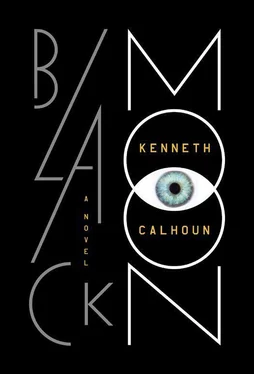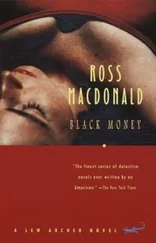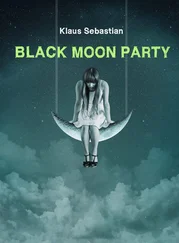FOR. the second night in a row, Mrs. Ferrell was pretending to sleep as her husband paced the floor or watched TV in the bed next to her. Her thoughts flashed just on the other side of her eyes. A deluge of fears. What happens now? The body has to shut down at some point. It just can’t keep going on and on, forever circling the drain.
She wasn’t sure why she was keeping it from him. A cure would emerge before it got too bad. Or it would just stop, ending itself because the alternative was unthinkable. Sometimes she would act as though he had woken her. Then she would attempt to sound groggy as she asked him what the news was, what they were saying about it.
“Go back to sleep,” he would say with an odd urgency. And when he said it that way, it seemed to her that he meant “sleep” as a place—a physical location, a state or country that she should take Lila and return to, as if it had once been their home. It was only exhaustion, she concluded, that made her hear it that particular way.
LILA pulled a blanket over herself in the backseat of the car. It wasn’t cold in the dark garage, but she needed it as protection, as camouflage. Then, curled up, she did it without any problem—the thing everyone was trying to do. Sleep was the summer craze, the must-have of the moment.
She saw how it could be true, what her father had been saying about insomnia being real in some people and imagined in others. You worry so much about sleeping that you can’t sleep. A self-fulfilling prophecy, he called it. It had this effect on her, but only to a point. Then exhaustion simply took over and she saw, in pre-REM flashes, the rusted post—the hawk’s safe roost—in the aqueduct quickly approaching. She was sliding toward it on the raft. She knew she had to grab it and readied herself.
SHE can do it, her mother seemed to say.
Through the door, she heard her father say something low and calm, but Lila couldn’t make out the exact words.
“She’s doing it under her bed,” her mother insisted, after a long silence. “And I bet that’s what she’s been doing in the car.”
LILA heard them talking in bed right before she opened the door, their voices sawing like stringed instruments through the wall. His low friction of worry, her high pluck of anger. Then there they were, still as statues. Pretenders. Eyes closed, flopped back on the pillows with the pale green sheets pulled up. She went to her mother’s side and looked at her face, examining the stillness for signs that she was there, awake under the surface. She was beautiful like this, Lila thought, admiring the full lips, the smooth contours around the eyes, the swell of cheekbones. And her dad, his face almost unrecognizable without the worried creases. They both looked younger this way, even if they’re faking it. Nice touch with the open mouth, Dad. Maybe I should drop a coin in there. What kind of song would I get?
MAYBE it was the hurricane upsetting a sealed storehouse of voodoo, Dr. Ferrell considered as his daughter hovered over them.
He distracted himself with his ongoing mantra of maybes.
Maybe it was the toxic dust from fallen towers, the ash creeping into our lungs. Maybe it was some ancient spore released by the melting ice. Maybe it was the earthquakes and the tsunamis they summoned. Maybe it was the hole in the ozone, the collapse of the upper atmosphere. Maybe it was the betrayal by the banks. Maybe it was the dead surpassing the living. Maybe it was the ground choking on garbage and waste. Maybe it was the oil blasting freely into the ocean, or the methane thawing at the bottom of the sea. Maybe it was the overload of information, the swarms of data generated by every human gesture. Maybe it was the networking craze, the resurrection of dead friendships and memories meant to be lost, now resurfacing like rusted shipwrecks to reclaim our attention and scramble our sense of time.
WHEN they first arrived, Lila and her mother talked about all the pretending going on. Everyone was pretending they weren’t living in a desert where no humans are supposed to live. It’s one thing for Marines to train out here, so they can be ready for those faraway deserts where the fight is sputtering on, but regular humans? They had a little joke about it. They would go to the store and every time they encountered another person, they would turn to each other and say, conspiratorially, Pretending . Or when they drove past the new rows of identical houses, with their feeble parkway trees: Pretending . At the brand-new bank, Mrs. Ferrell pointed to the little strip of lawn that lined the smoldering path. “Look how it pretends there on the ground,” she said.
Lila got in on the action, pointing to a playground that jutted from the side of a fast-food restaurant. The brightly colored plastic playthings about to melt in the white heat. “Pretending,” she said.
Her mother looked sad. “Maybe more than anything,” she said.
Everyone was still sleeping then.
MAYBE it was the death of an artist at the hands of a zealot. Maybe it was the preachers howling on the subways, or the political lies that hit us like the vibrating hand, killing us years later. Maybe it was the particles made to collide. Maybe it was the return of slavery. Maybe, like the nuts say, it was the chemtrails scarring the sky, the black helicopters, the UFOs hovering over sacred sites. Maybe it was the rewiring of our minds. Maybe the mapping of the genome. Maybe the blowing up of Buddhas. Maybe it was the death scream of dolphins ringing in our ears. Maybe it was the clash of gods, the tug-of-war over our souls, not one of them refusing to let go, instead opting to see us sliced in two by Solomon’s sword.
HER father sat down heavily on her bed. She was online at the time, her avatar dancing on an iceberg with some penguins. “Look, kiddo,” he said, “we know you can sleep. You don’t have to hide it from us. Well, you do, but unless we see you, nothing’s going to happen. We’ll make sure you do it in a safe place.”
She turned from the screen. “So it’s true that you can’t. Both of you.”
He looked at her, then slowly nodded.
“Why can’t you take something for it?”
“We have. It doesn’t work anymore. Makes it worse, actually.”
Her eyes welled. She blinked against it. “What’s going to happen?”
The doctor slumped, rubbed slowly at his face as if trying to locate a strand of spider web he had walked into. “I don’t know,” he said. He kept his knowledge to himself: how they would start to lose their minds, how their bodies would begin to fall apart, their immune systems collapsing. How they would seek relief at any cost, as some of his Marines had done. She and the dwindling numbers of those like her were rapidly becoming the only reassurance, the only hope, they had. Maybe they were immune. Maybe just late to the party.
“Daddy,” she said, reaching out and squeezing his wrist.
He looked at her hand, configured with fear.
“We knew you were okay when you came in the room the other night,” he said.
“When you guys were faking it.”
“You didn’t go ballistic, so we knew.”
SHE saw it happening like the stars going out, one by one. Her online friends dropping off and never showing up again. If it wasn’t summer, she bet school would have been canceled by now. Everything was shutting down, going dark.
HER parents had taken to handcuffing themselves to the piano and giving Lila the key, telling her to sleep in the master bedroom because the door could be locked from the inside. She could hear them talking, sometimes arguing about whether he had betrayed his beliefs by working for the military, or whether they—Lila and her mother—should have moved out here to be with him. Maybe they should have given him more time and he would have walked away from the job.
Читать дальше












